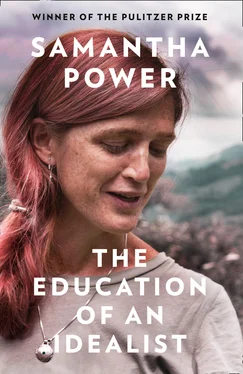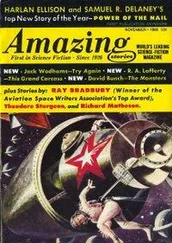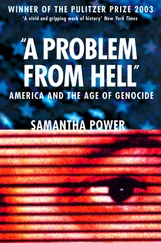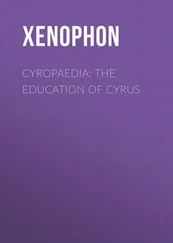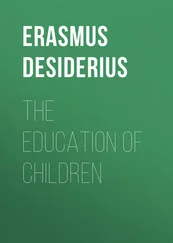Tumbling on his …
Just as I was about to scream out the risqué swearword “ass,” Eddie would plow ahead with great animation:
Don’t misunderstand me.
Don’t you be misled.
Down came the elephant,
Tumbling on his head.
While my dad was quick with a cutting barb and flaunted encyclopedic recall, Eddie had a warmer, more inclusive kind of wit and an intelligence that extended well beyond the field of medicine. He would sit for hours with a pencil, marking up dense history books covering everything from Qing dynasty China to the origins of the universe. Eddie was also a once-in-a-generation storyteller. As the drinks flowed among friends, he played the role of the old Irish seanchaí , who offered jokes and tall tales. He would gesticulate dramatically, acting out each of the characters in his stories, his entranced audience holding their sides with laughter well before the punch line. The humor was in the telling, and Eddie delighted in other people’s delight. I sometimes had the sense that, as he went about his day, he was thinking less about what was happening around him than about how he would later stage his comic reenactments.
Eddie made Mum laugh—and laughing always seemed the most important part of their life together. During my childhood, I saw my mother’s face shine in two predictable circumstances: watching my father play the piano and Eddie winding up for a joke or story. She loved them both at different times, and they both drove her mad.
Eddie had been raised in a strict, staunchly nationalistic household, and had attended an Irish school where even calculus was taught in “the medium”—the Gaelic language. The Irish nationalism around him was so intense that, if a boy in his school mistakenly used his head on the Gaelic football field (as one does in the “English” sport of soccer), the match would be suspended, and the ball confiscated. Rugby and soccer were seen as sports for Protestants and Anglophiles. Despite his cerebral day job, Eddie could get choked up singing Irish rebel songs or reciting Irish insurgent Robert Emmet’s last words before he was hanged by the British in 1803.
Years later, I would hear Irish novelist Colm Tóibín speak about how, growing up in Ireland, there was simply nothing worse than “being boring.” “You could be smelly, you could be ugly, you could be fierce dumb,” he said, happily, “but you could not be boring.” This had been the sensibility in our home in Ireland, and so it came to be in America as well. Eddie was as far from boring as Pittsburgh was from Dublin.
When we passed through customs, I gave Eddie a huge hug—what he called a “Squasheroni”—and shouted hello in my pidgin Arabic, “ Ahlan wa Sahlan! ” “ Ahlan bik, Alhamdulillah! ” he answered, welcoming me.
Like many intellectuals, Eddie frequently had difficulty focusing on real-world tasks. But having lived in Pittsburgh for nearly a year before our arrival, he had made impressive preparations, drawing on the help of his close Irish friends in the area. He had found a two-story house for us to move into together, and purchased a yellow Renault Le Car for Mum—to complement the charcoal Le Car that he drove.
In Ireland I’d had little exposure to America. The three channels on our Dublin television had played mainly Irish and British programs, so the little I knew about the United States came mostly from American exports like The Incredible Hulk and Charlie’s Angels . The few Americans I had actually encountered were tourists in Ireland on their golf holidays, most of whom seemed to be tanned men with straight teeth and loud opinions.
I didn’t arrive in the US until after the local public elementary school year had already started. When Mum walked me inside and introduced me to my new teacher, I was wearing the outfit I had worn to my Catholic school in Ireland—a navy and green skirt, knee-high lace socks, black leather dress shoes, and a white golf shirt. Immediately, I felt out of place next to my classmates in their blue jeans and docksiders. Within a couple weeks, Mum took me shopping at Kaufman’s Department Store, and I chose what I saw around me: a Pittsburgh Pirates T-shirt, a #12 Terry Bradshaw Steelers’ jersey, a Steelers’ sweatshirt, a green Izod golf shirt, green Izod pants, and a pair of light tan corduroys. This selection would tide me over until our next shopping outing many months later—although I quickly learned from my classmates that if I wore my all-green Izod outfit on Thursdays, it obviously indicated that I was “horny.” While I had no idea what this meant, I did know melting into my surroundings necessitated avoiding green on Thursdays.
Relatively self-assured in Dublin, I now felt self-conscious in Pittsburgh. I had a thick Dublin accent, long red hair in a ponytail, and pale skin. My freckles suddenly seemed to stand out against the backdrop of a complexion that had seen more rain than sun. Unable to do much about my wardrobe or my Irish looks, I dedicated myself to changing my accent, rehearsing a new American way of speaking in the mirror.
I also acquired a new vocabulary. My Sunday “brekkie” of rashers, black and white pudding, and burnt sausages became an American “breakfast” of bacon and eggs. My “wellies” gave way to “snow boots.” The older kids weren’t smoking “fags” behind school, they were merely sneaking “cigarettes.” And if we needed medicine, we no longer got it from the local “chemist,” but from the “pharmacy.”
Quickly seeking to master the preferred profanity of the locals, I noted that a combative classmate was no longer a “right pain in the arse,” but a “royal pain in the ass.” I made a particular point of brandishing words and phrases that I was told were unique to the Pittsburgh dialect, like “yinz” (for “you all”), “pop” (for “soda”), and “jagoff” (for “jerk”).
Of course, other differences abounded. After years of bland cornflakes, I had infinite cereal choices, though I usually landed on Cocoa Krispies or Lucky Charms. The bus I took to school was no longer Irish green but mustard yellow. In Ireland, when I misbehaved (hiding out in the girl’s bathroom, for example, to avoid ballet class, which I detested), I had been asked to produce my hand and was given a lashing with a belt or ruler. In the United States, however, I soon saw that punishment merely consisted of sitting in a corner removed from one’s classmates.
Young boys lived in almost all of the houses on my street. For a tomboy like me who loved sports, the neighborhood was a dream. In Ireland, Mum had taught me to play tennis, soccer, and a bit of field hockey. But the boys on Hidden Pond Drive played—and talked about nothing but—baseball. The game seemed slow, as it does initially to foreigners. But once I mastered the rules and key statistics (batting averages, RBIs, and ERAs), every pitch thrown during every at-bat seemed like a vital part of my day.
Mum adapted to her new life, showing no discernible nostalgia for the country she left behind. Despite her deep empathy for others, she focused far less on exploring her own feelings. When I pointed out this inconsistency when I got older, she either changed the subject or just ended the conversation with a dismissive “Arragh sure, I can’t be bothered.”
Despite completing her medical residency back in Dublin, Mum was required to redo her training in the United States, a three-year ordeal. Yet during the same period, she somehow managed to master the new American sport of racquetball (quickly winning the local club championship). She also regularly took Steve and me to Three Rivers Stadium for the baseball games of our new hometown team, the Pittsburgh Pirates. Unlike most of my new friends’ parents, she never even considered leaving before the last out. And remarkably, she attended most of my school and sporting events.
Читать дальше
